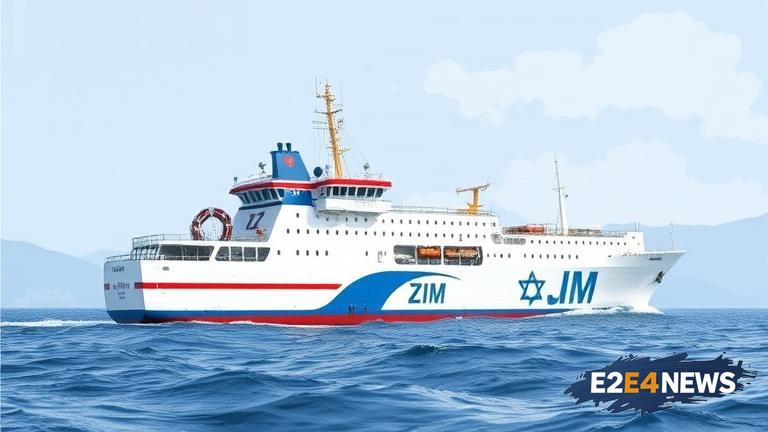Zim Integrated Shipping Services, a leading Israeli shipping company, has announced that it will be rerouting its vessels from Turkey amid a new ban on Israel-linked ships. The ban, which was recently imposed by Turkish authorities, has significant implications for trade and shipping operations in the region. The move is seen as a response to the ongoing tensions between Turkey and Israel, which have been escalating in recent months. Zim has stated that it will be diverting its ships to alternative ports in the region, in order to minimize disruptions to its operations. The company has a significant presence in Turkey, with several ships calling at Turkish ports on a regular basis. The ban is expected to have a major impact on Zim’s operations, as well as those of other shipping companies that operate in the region. The Turkish government has stated that the ban is in response to Israel’s actions in the region, which it sees as a threat to regional stability. The ban has been met with criticism from the shipping industry, which argues that it will have a negative impact on trade and economic growth in the region. Zim has stated that it is working closely with its customers and partners to minimize the impact of the ban, and to find alternative solutions for its operations. The company has also expressed its commitment to maintaining its operations in the region, despite the challenges posed by the ban. The ban on Israel-linked ships is not the only challenge facing Zim and other shipping companies in the region. The ongoing tensions between Turkey and Israel, as well as the conflict in Syria, have created a complex and challenging operating environment. Despite these challenges, Zim remains committed to its operations in the region, and is working to find ways to mitigate the impact of the ban. The company has a long history of operating in the region, and has established strong relationships with its customers and partners. Zim’s decision to reroute its vessels from Turkey is seen as a pragmatic response to the ban, and is intended to minimize disruptions to its operations. The company is expected to continue to operate in the region, albeit with some adjustments to its routes and operations. The ban on Israel-linked ships is a significant development in the region, and is likely to have far-reaching implications for trade and shipping operations. Zim’s response to the ban is seen as a testament to the company’s commitment to its operations in the region, and its ability to adapt to changing circumstances. The company’s decision to reroute its vessels from Turkey is expected to have a significant impact on its operations, as well as those of other shipping companies in the region. The ban is also expected to have a major impact on trade and economic growth in the region, as it will limit the ability of shipping companies to operate in Turkish ports. Zim’s commitment to its operations in the region is seen as a positive development, and is expected to help to mitigate the impact of the ban. The company’s ability to adapt to changing circumstances is a key factor in its success, and is expected to serve it well in the challenging operating environment of the region. In conclusion, Zim’s decision to reroute its vessels from Turkey amid the new ban on Israel-linked ships is a significant development in the region, with far-reaching implications for trade and shipping operations. The company’s commitment to its operations in the region, and its ability to adapt to changing circumstances, are seen as key factors in its success, and are expected to help to mitigate the impact of the ban.
